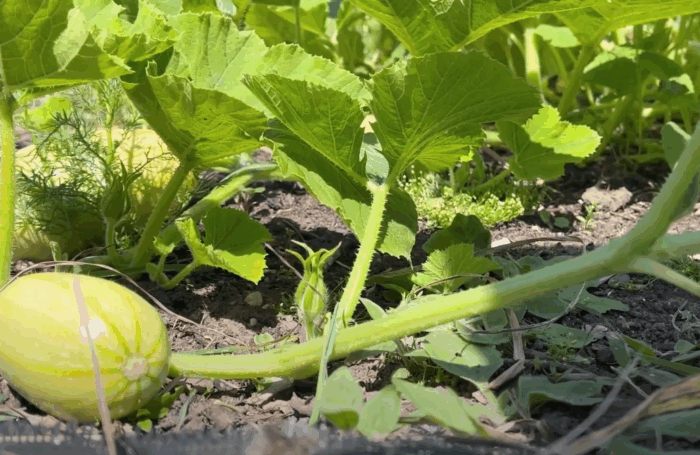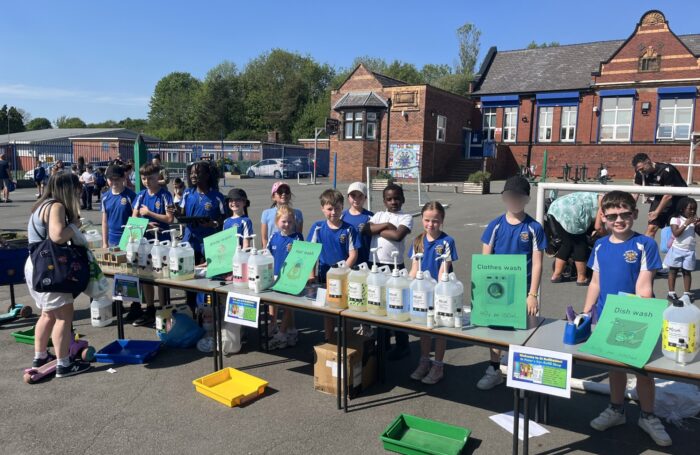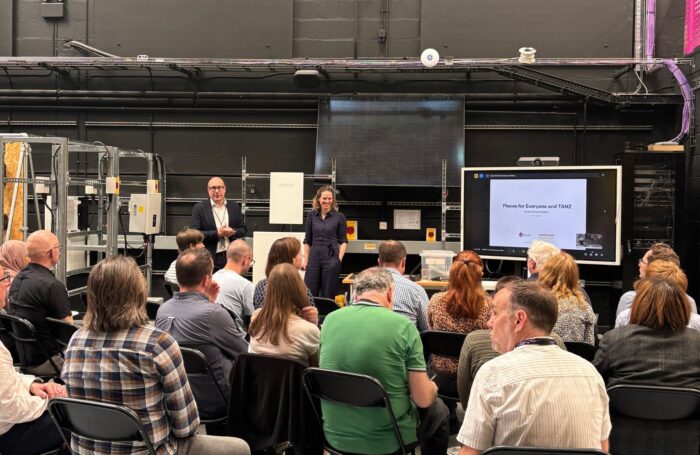From community groups and charities to businesses and schools, we believe that everyone has a role to play in helping nature recovery across Greater Manchester. We’ll be shining a spotlight on the passionate individuals who are already leading the way – our Local Nature Champions.
Melanie Donovan is a volunteer gardener and garden designer.
Tell us about your project.
I recently exhibited in the Long Border category at the RHS Flower Show Tatton Park. I have lived in Greater Manchester my whole life and as a very proud Mancunian I was inspired by the changing skyline of my home city. As cities evolve, it is vital that we preserve existing green spaces but also create new ones, for the benefit of the planet and our communities. As space is often at a premium in cities I wanted my design to demonstrate how a small border can be created to benefit local wildlife and our health and wellbeing.

Seven metal obelisks, representing skyscrapers, tower above the planting of pretty pinks, purples and yellows – a warm contrast and softness to the coldness of the city. I chose a variety of pollinator friendly plants of different heights and shapes to encourage wildlife and biodiversity to the border and to create a calm mindfulness to the busy city. My design will be relocated at Royal Oldham Hospital.
How did you first get involved in nature recovery?
Like many during the pandemic, I found my garden to be my refuge and my connection with plants and nature bloomed. Since then I have completed the RHS Level 2 Diploma in Horticulture and I’m currently studying RHS Level 3 Garden Design. I volunteer as a gardener at National Trust Lyme which I find extremely rewarding and a great way to preserve our existing green spaces, put into practice my learning and pick up more skills along the way. I recently acquired a local allotment which is also allowing me to learn more hands on skills, as well as reap the benefits of fresh home grown flowers and produce. I love that I am creating and preserving a habitat for local wildlife and encouraging pollinators within my community.

What do you think nature offers Greater Manchester?
There are so many great projects and initiatives in the Greater Manchester area, all of which are very inspirational and I love reading about them and visiting them. I think it is amazing how many of these projects are created by members of the local community dedicating their spare time, love and passion to make their community better, more nature friendly and a place for everyone to connect and feel a part. It makes me very proud of my city when I hear of local community green spaces being renovated, maintained or created.
Why do you think it’s important more people get involved in nature?
I would love everyone to have the opportunity to create their own little green spaces, spend spare time in their local parks and community gardens. There are lots of fantastic community garden groups out that that need support from volunteers. Green spaces provide something that is bigger than us, a space to feel part of a community plus the benefits of the outdoors for our own physical and mental health and well being. The benefits are huge! Protecting our green spaces now and for future generations is crucial.
How can people get involved in your project?
I would like to encourage everyone to just have a go at creating their own wildlife garden, whether they have space for just a small border or some container pots. Adding some pollinator friendly plants to a space, of any size, will bring the bees and butterflies to your garden. Choose herbaceous perennials for plants that will come back each year. Volunteering at a local garden community project is also a great way to learn new skills, meet people and socialise.

What do you think is the single greatest priority for nature recovery in Greater Manchester?
Continued maintenance of existing green spaces and the creation of new green spaces across the city, especially in areas where people do not have access to one. I would like to see gardens and planters across the city regularly maintained and cared for. I would also like to see plant choices made on their benefits to wildlife and the environment, not on their low maintenance benefits.
And if time and resources weren’t an issue, how would you address that priority?
Increase the size of the teams responsible for the maintenance of our green spaces, employing skilled horticulturists. Engage with and provide training to people in the local community to help care for the green spaces neighbourhood, installing pride and reward.
Find out more about our plan for nature recovery
Greater Manchester is currently developing its Local Nature Recovery Strategy, which will set out a blueprint for a more liveable city-region, with fairer access to green space for all.
Find out more including ways to get involved on our nature recovery webpage.


